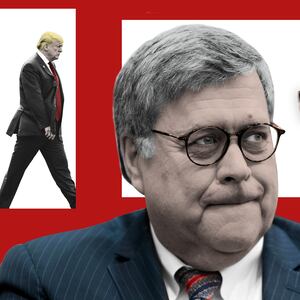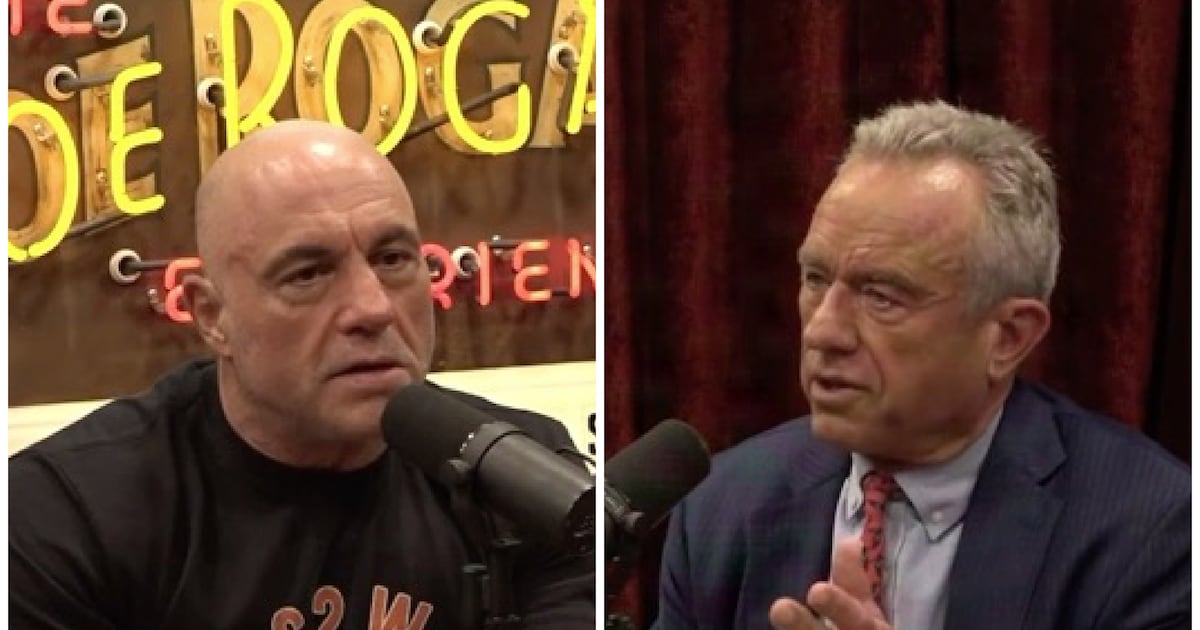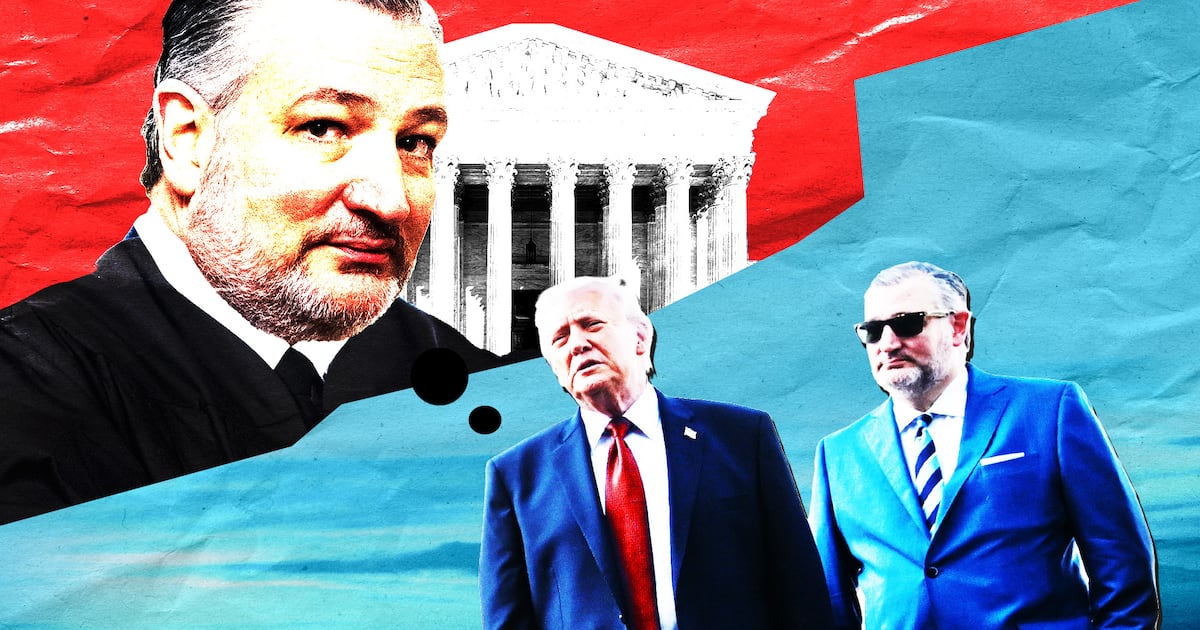President Donald Trump's relationships with his attorneys general have turned on their willingness to protect him against special counsel Robert Mueller's investigation. Trump’s latest nominee, William Barr, indicated to a crucial Senate panel that he and Trump won't be in lockstep on the issue that threatens Trump's presidency.
Barr, who was George H.W. Bush’s attorney general, attempted to set a tone of measured independence before the Senate Judiciary Committee on Tuesday. He sharply defended his friend Mueller, and defused much Democratic criticism by scaling back an extensive legal memo he wrote in June 2018 that seemed to criticize Mueller for going beyond the special counsel’s mandate in investigating Trump for obstruction of justice.
At the same time, Barr said he wouldn’t necessarily recuse himself from direct oversight of the Mueller probe in the event career ethics officials at the Justice Department advise him to step aside. Jeff Sessions followed internal recusal guidelines at the expense of his bond with Trump, who castigated him for it and forced him out after the midterm elections. Sessions’ successor, Acting Attorney General Matthew Whitaker, ignored ethics officials’ advice to step away from Mueller.
“I am not going to surrender my responsibilities,” Barr told Sen. Richard Blumenthal (D-CT).
Mueller didn’t appear at Barr’s confirmation hearing. But his influence was inescapable.
Barr emphasized that he expected Mueller to have entered in the endgame of his 18-month investigation, which has yielded multiple indictments, convictions, and guilty pleas against senior Trump associates like Paul Manafort and Mike Flynn. He committed to making as many of Mueller’s conclusions public as possible. He clarified that he didn’t intend his June memorandum to be an omnibus rejection of obstruction inquiries against a president. And Barr said he considered it “unthinkable” for Mueller to do anything meriting the special counsel’s removal—and specifically rejected the Trump-pushed notion Mueller is conducting a “witch hunt” —providing reassurance against fears on the left that Barr’s appointment is about suppressing Mueller.
But Barr's emphasis on his discretion in overseeing the Mueller probe left an important ambiguity. Barr committed to releasing a summary of the Mueller report that he would summarize, citing the regulations establishing the special counsel, but raising concerns over just how selective the Barr summary might be. “The Attorney General has such discretion—and not only to release ‘information’ about the report but also to release the report itself,” noted Josh Geltzer, a former Obama administration Justice Department official, after the hearing.
Remarkably, Barr conceded he could see circumstances where Trump could be considered to have obstructed justice. Queried by Delaware Democrat Chris Coons, Barr said that if Trump floated a pardon to subordinates as “a quid pro quo to altering testimony, that would implicate an obstruction statute.” As recently as November, Trump said he was open to pardoning Manafort, his former campaign chair, and his ex-lawyer reportedly suggested pardoning Flynn, his ex-national security adviser, as well.
Barr also backtracked from the implications of his now-infamous memo that appeared to lambaste Mueller for investigating Trump over obstruction of justice.
Under repeated questioning, Barr said he was speculating about Mueller’s theory of obstruction–rather than asserting what it in fact is–particularly if that theory turned on Trump firing FBI Director Jim Comey for what Comey has characterized as Trump’s efforts to protect Flynn, who subsequently pleaded guilty to lying to the FBI.
“I was not calling Mueller grossly irresponsible,” Barr said. Asked by Sen. Dianne Feinstein (D-CA) if he received any nonpublic information about the Mueller probe, Barr hedged: “I don’t recall getting any confidential information about the investigation.”
Barr distanced himself from Sessions in several areas, and particularly on marijuana policy. While Sessions’ war on drugs sparked fights with Republicans and Democrats alike from states where marijuana sales are legal, Barr told Sen. Cory Booker (D-NJ) he would not interfere with the states that decriminalized or legalized marijuana, but indicated that Congress would need to take concerted action to prevent a patchwork of clashing state and federal laws.
“We either should have a federal law that prohibits marijuana everywhere, which I would support myself. Because I think that it’s a mistake to back off on marijuana. However, if we [don’t] want a federal approach, if we want states to have their own laws, then let’s get there and let’s get there the right way,” Barr said.
He also showed a willingness to work with Booker on structural racism in mass incarceration, agreeing to continue a colloquy on the issue with the New Jersey senator at a later date.
As well, Barr said a 2015 clarification about the illegality of torture–one that Sessions, as a senator, voted against–was “an important change” that he supports, despite his George W. Bush-era support for “coercive interrogation, applying pain, discomfort, and other things to make people talk.”
Yet Barr didn’t rule out jailing journalists–whom Trump calls the “enemy of the people”–as a “last resort,” particularly in cases where a news organization “knows they are putting stuff out where they’re hurting the country.” It was unclear what legal underpinning Barr saw justifying a First Amendment-protected activity. Even in cases where news organizations publish classified information, the publication isn’t illegal, though the Justice Department under at least the last three presidencies has held that providing such information to the press is criminal.
Barr treaded lightly on immigration, and specifically the harsh "zero tolerance" immigration strategy Sessions aggressively pursued. He said he supported a "barrier" on the southern border, but stopped short of saying he backed the full 1,900-mile wall that Trump has made a condition of reopening the government. Yet Barr said he supported the right of immigrants to apply for asylum, and subtly reinterpreted zero tolerance to mean "whatever DHS refers to us in the way of illegal entry prosecutions, we’ll prosecute," rather than a policy of separating migrants parents from their children.
The hearing, largely free of partisan grandstanding even with three potential Democratic presidential contenders in the room, was not without political ploys.
Newly minted Judiciary Committee Chairman Lindsey Graham (R-SC) began the hearing by raising right-wing concerns about FBI and Justice Department misconduct. Graham first raised the January 11 New York Times story in which it was revealed that after the firing of FBI director James Comey, the agency took the extraordinary step of opening a counterintelligence investigation into Trump for fear he was working against American interests for Russia.
“Are there rules about how you can do counterintelligence investigations?” Graham asked.
When Barr replied there were—in fact, they’re contained in official department guidelines—Graham asked if there were “checks and balances” if one was opened up against the president.
“Not outside of the FBI,” Barr said.
Graham replied, “Well, we need to look at that.”
Graham moved on to conservative bêtes noires former FBI lawyer Lisa Page and counterintelligence special agent Peter Strzok, reading their infamous text messages that disparaged then-candidate Trump to Barr.
“I was shocked when I saw them,” Barr said, when Graham asked his reaction to the texts.
“In terms of people that are actually enforcing the law, don't we want to make sure they don't have an agenda?” Graham asked.
Barr agreed.
“Please get the bottom of it, I promise you, we will protect the investigation but we’re relying upon you to clean this place up,” Graham said.
Barr also confirmed that he had discussed joining Trump’s personal defense team in June 2017–but had turned the president down.
At the behest of David Freedman, then as now the U.S. ambassador to Israel, Barr agreed to meet with Trump at the White House. It was the month after Trump had fired Comey and the deputy attorney general, Rod Rosenstein, had appointed Mueller as special counsel. Barr said that he had already made up his mind to avoid what he called the “burden” of representing Trump, who asked him for his assessment of Mueller.
“He’s a straight shooter and should be dealt with as such,” Barr recalled telling Trump.
Trump took his phone number and, Barr said, they didn’t interact until Trump offered him the leadership of the Justice Department.








